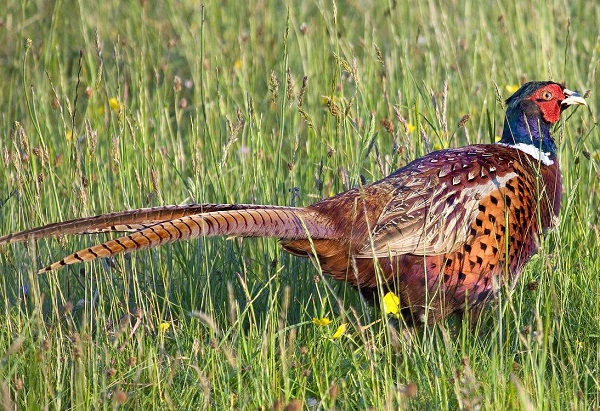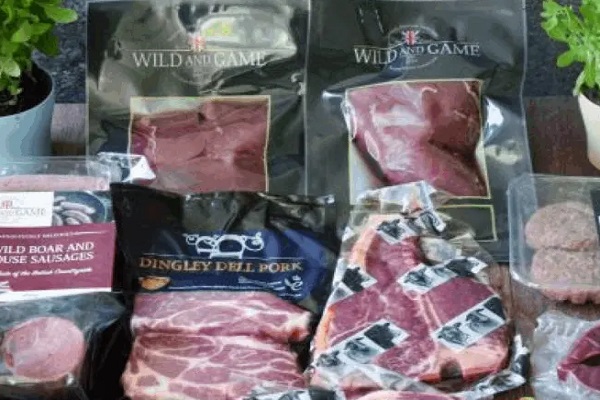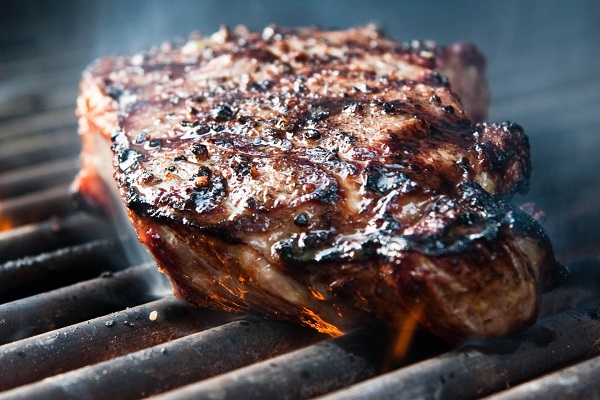
Did you know that game meat doesn’t have that ugly looking pink goo that most farmed meat has? Back in the 90s, vigorous conservation efforts saw the consumption of wild game meat hit an all-time low as many people heeded the call to save species of animals in the wild. Conservation efforts have since improved in response to the need for sustainability and that includes controlled hunting of certain animals.
You can now get any type of legally hunted game meat, including rabbits, ducks, deer, bison, venison, and pheasant. You can also go for exotic game meat such as crocodile, alligator, kangaroo, or rattlesnake which may be expensive depending on your home country. Licensed game meat is not a health risk or a contributor to the extinction of species as many still think. However, talking about animals that can be hunted without any legal hurdles, it is a passion for a few people who are ace at hunting with their long-range rifles. They tend to use a hunting rifle with Berger bullets (if interested, check out the Berger bullet reloading manual) and try to hunt as many animals as possible.
Moreover, if you want to experience the thrill of the hunt, you can legally hunt a few types of animals and make it into a weekend fun activity with the family. For instance, you can learn what type of animals are legal to hunt in your local vicinity, gather some hunting supplies such as riffle or gun, ammunition (which you can get through an ammo store in Colorado Springs or elsewhere), and a few safety gears such as gloves. cap, camouflaging clothes, etc. Moreover, wild meat actually packs a lot more benefits to both your health and the planet than some of the farm-bred meat that lines our store shelves. While buying hunting gear look for versatile gear that can be used in different situations. And also choose gears of good quality that are durable. Numerous guides are available to educate people with information on how to pick the right gear for your hunting adventure.
Game Meat Is Leaner Than Farm-Bred Meat
Just like human beings, animals gain more fatty tissue when they are kept in sedentary conditions and that is why many farmed animals become so fatty. Most farmed animals are also intentionally bred and fed certain foods to grow and fatten quickly for the sake of profit. The fat-oriented diet and breeding habits compromise the fiber density and the quality of fat contained in the meat, which is why the wild game is a lot more natural. For instance, a hunted Nilgai can have leaner muscles, low cholesterol, and calories as well as more nutrition than farmed meat. Similarly, other wild animals could be better to consume, and that can be more healthy for you.
It Has a Lower Risk Of Food Borne Diseases
We are talking about game meat and not gutter-foraging animals here so when you see game meat in the store, you should not associate it with disease-causing viruses. Certain wild animals carry bacteria and viruses such as the cases that were reported in China before the pandemic involving monkeys and bats and parts of Africa where people eat certain monkeys which leads to disease outbreaks.
However, Herbivores and birds whose primary diet is grains and grass are safe to eat. And besides, before the meat is accepted by stores for sale, it is tested for any dangerous bacteria or viruses so game meat won’t make you sick as some people assume.
Gamey Isn’t Actually Bad
Game meat has the true taste of the wild which some people describe as gamey. The meat has more iron than homebred meat because the animals roam around and get to develop a higher content of this mineral with their wild diet. As a result, most wild meats have a strong savoury taste which can be intense for some people but it doesn’t actually taste bad. If cooked right, wild meat will taste way better than its farmed animal version.
It Has A Lower Carbon Footprint
It may come as a surprise but wild game meat is a lot greener than the hostile animal farms out here. Farming beef and dairy cattle are one of the highest contributors of greenhouse gasses on the planet. Clearing of forests and burning of carbon in industrial-scale agricultural activity is really ruining the planet and the taste of the wild is a welcome break. Wild game meat is often locally sourced and has a way lower carbon footprint than conventional methods of obtaining meat.
It Doesn’t Contain Antibiotics
The demand for organic meat is higher than ever before due to the risk of chemicals and antibiotics used in farm bred animals, but wild game is the truest organic meat you will get. Antibiotics in the food we eat is a major concern as it is associated with an increased risk of cancer and other diseases. It is almost impossible to raise animals on farms without using antibiotics though and the quantities used keep increasing each year which is why game meat may be a better alternative. Wild game doesn’t have the same antibiotics used on farms which is why most of it doesn’t have the same pink goo that comes out of most farmed meat.

It Doesn’t Need A Special Recipe
Game meat may smell or look a little different from what you are used to but it really doesn’t need any special recipes to make it delicious. The meat is often more flavoursome than what you get from the farm hence a tastier treat despite what recipe you use. You can just season and cook the meat with the same ingredients you use to cook other meats. You should use the recipes that focus on lean meat or adjust the quantity of oil on your regular recipe just a little bit to make up for the leanness of the meat.
It is richer in Omega 3 Fatty Acids
Omega 3 to Omega 6 fatty acid ratio is a vital component of food because these are vital fatty acids that make up the building blocks of our brain cells and also help white blood cells fight diseases. Oily fish like salmon are now the best source of omega 3 because farmed animal meat doesn’t have enough of it. Wild game meat such as duck, venison and even deer have a high enough content of these rare fatty acids for some reason which is a mystery for many scientists but it is the case.
Most Game Meat Actually Contribute To Conservation Efforts
Wild dicks, rabbits, bison, kangaroo and bison are only hunted during certain seasons, especially after breeding when the populations have increased. The number of hunted individuals is also limited to places where overpopulation threatens the survival of the bird or animal. It is therefore sustainable to kill a few animals to keep the population in check. The proceeds from the meat also go to the conservation of the animal’s habitat.
It Could Be Cheaper Than Farm Meat
The cost of lean meat is going up daily and the same goes for organic meat because both are becoming more expensive to farm. Hunting is hard but most people do it for conservation and as sport and not for profit so the few organizations that sell don’t charge a fortune for it, especially during hunting season. Even specialized restaurants that serve game and exotic meat end up being cheaper than farmed meat options. The assumption that game meat is always expensive is therefore misguided.
It can be blended with Farm Bred Meat
The intense flavour in game meat proves too hard for some first times to handle. Being lean, sometimes, cooking it plainly can lead to tougher meat when you don’t cook on low heat with sufficient oil. When done right, game meat will end up tasting even better than farmed meat. You can still blend it with sausages or other farmed meat if you want to have better control of the fat levels and taste.
Have you tried wild game meat? If you have why not tell us what you think about it in the comments below!








